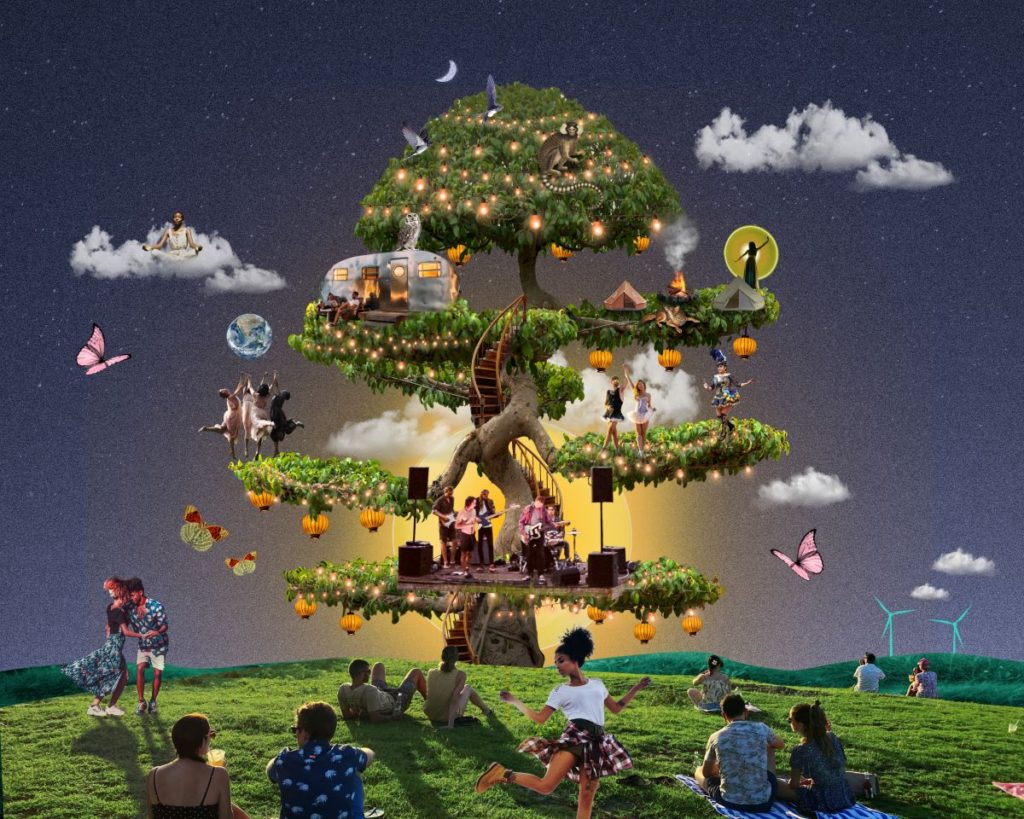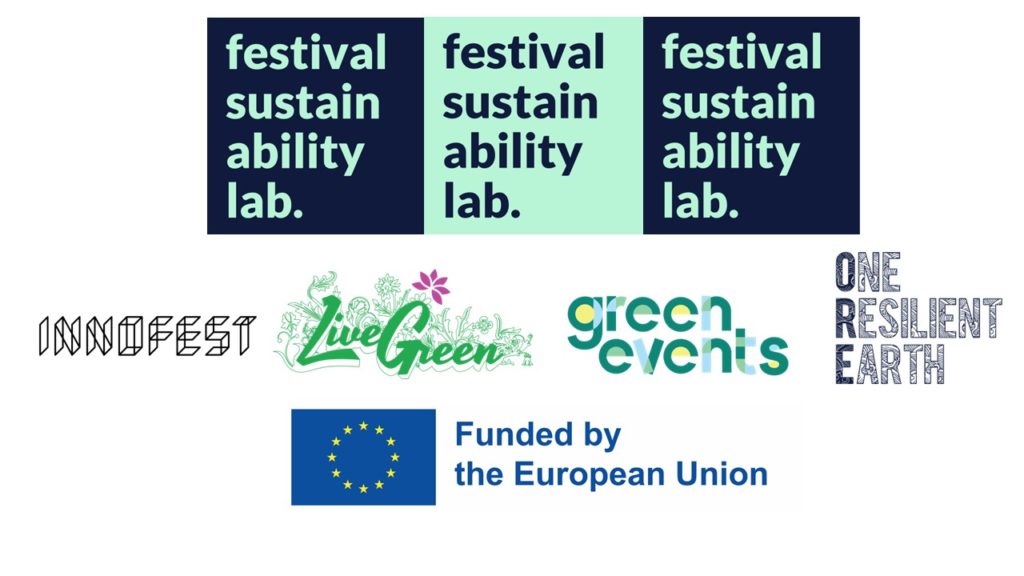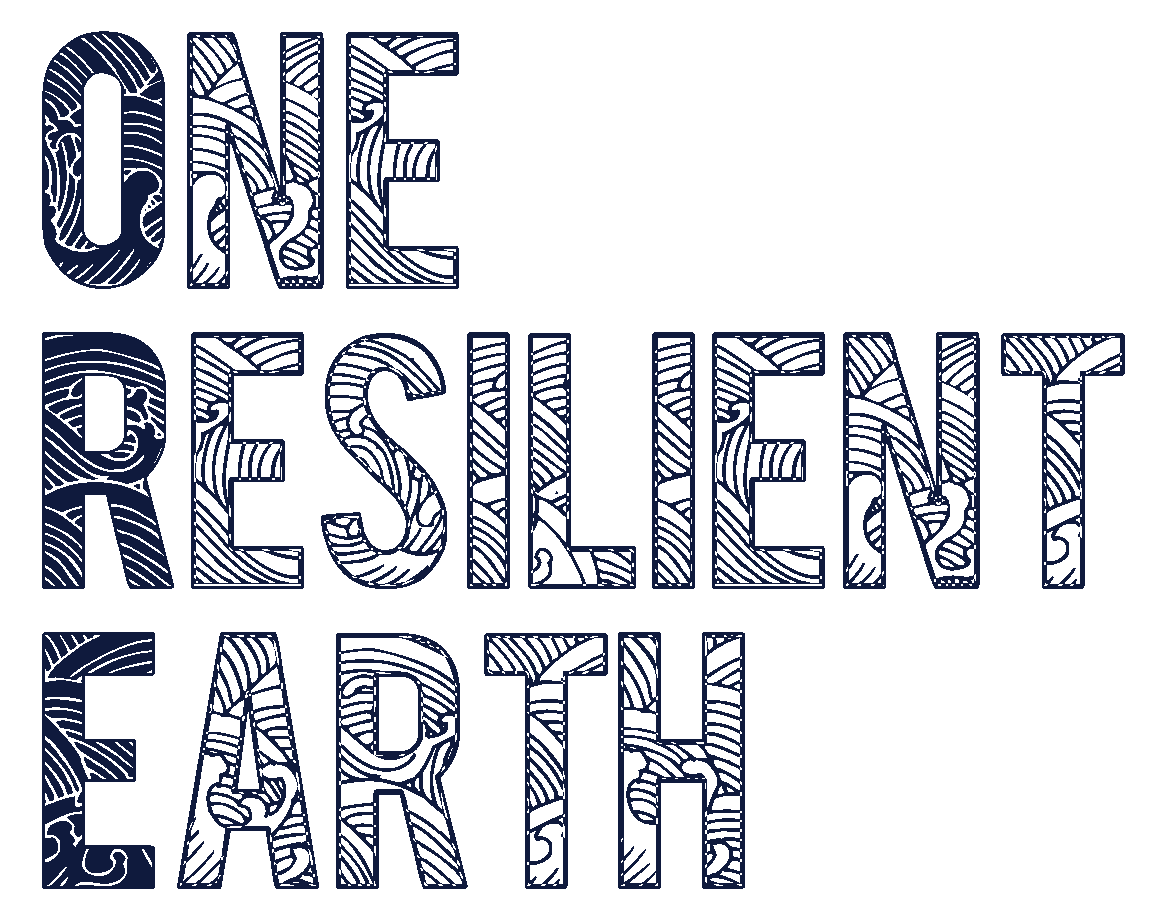Festival Sustainability Lab is a collaboration between Innovest, Green Events, Live Green and One Resilient Earth, to accelerate the evolution of the cultural and creative sectors, making them more resilient, fit, and relevant in climate-altered futures. The learning journey took place from February to April 2023. We are now coaching three influential teams working with music festivals in Europe!
At the heart of the EU-funded project are three digital labs with a focus on experimentation, innovation, and the development of transformative practices. Together with various organisations, artists, labels, and creatives affiliated with the festival industries across Europe, Festival Sustainability Lab will foster peer-learning and transformation in the fields of technology, logistics, art, and communication.
A Deep-dive into climate resilience
The One Resilient Earth Lab is a Deep-dive into Climate Resilience through Regeneration and Transformation. Based on the latest climate science and on-the-ground experiences, it addresses the following questions:
What if we had to stop organizing music festivals in the near future because the weather had become too erratic to organize outdoor events, and sea level rise was eating up some festival sites? What if ‘business as usual’ no longer made sense financially nor morally for organizers, artists and participants?
Can we collectively dream another way forward where festivals mutate and catalyse a deep societal transformation while helping regenerate ecosystems? What would festivals look like if they actively contributed to making our worlds more climate-resilient, regenerative, biodiverse, culturally-rich, creative, and caring? Can we dream this world into being with the latest climate resilience and regeneration science, Indigenous Peoples’ inputs, creative facilitation techniques, and responsible experimentations?
Artists, festival organizers, and (aspiring) sustainability leaders in the cultural and creative sector were invited to learn how to grow resilience to the impacts of climate change, as well as to explore together how to transform from the inside out, and foster the regeneration of communities and ecosystems through arts, culture and community-making.

What did participants learn?
Following an introduction, we equipped creatives and sustainability professionals in the festival sector with new knowledge, methods and tools to: :
- Prepare for the short- and medium-term impacts of climate change on festivals (16/02), so that they can engage in reducing, mitigating and addressing climate change impacts and risks on your activities
- Understand emotions related to climate change to foster inner and outer change (02/03), and catalyse meaningful and lasting climate action for ourself and among wider groups
- Support transformative sustainability approaches without colonizing the future (16/03), and avoid adopting sustainability ‘solutions’ or practices that displace or postpone ecolological issues, reinforce extraction, and create injustice globally
- Embrace uncertainty and be ready for multiple futures with Futures Literacy (23/03) by understanding how we can use different visions of the future to be more flexible and innovative in the present
- Restore connections to oneself, others and nature through music and the arts (30/03), so we can mobilize the arts as a channel for deep socio-ecological and cultural transformation
- Collaborate through, with and for communities (13/04) to grow our climate resilience, re-buid communities of support, and foster the restoration of ecosystems
- Open up new ways forward on climate resilience, regeneration and transformation (27/04) so as to develop regenerative practices at personal, organizational, and community levels
As a result, participants learnt what climate change impacts and risks, climate resilience, regeneration and cultural transformation mean for their activities. We grew our understanding of the emotional and mental health effects of climate change and of ways to address them. We explored the risks of climate colonialism, and the role of Futures Literacy in change processes. We also developed critical 21st century skills such as empathy and deep listening, as well as imagination, and creativity.
How did participants learn?
They had access to:
- Interactive online training sessions of 2 hours every other Thursday from 3 to 5pm CET, from February to April 2023. The sessions were recorded;
- Complementary learning material in written and audiovisual formats, and synthesis of group interactions, both before and after the interactive session;
- A private online forum on the ‘We are One Resilient Earth’ community platform for participants to deepen connections with other pioneers from around the world. The community platform remains accessible after the project ends;
- Additional open-sharing circles and workshops offered by One Resilient Earth, including the weekly Climate Workers Circle.
At the end of the collective learning experience, One Resilient Earth is providing customized technical advice to three selected artists or cultural organizations on integrating climate resilience and regeneration into their work, through a series of free one-on-one coaching sessions. Those sessions are taking place between May and October 2023.
Who did participants learn with and from?
This exclusive programme was offered to a selected group of artists, festival organizers, sustainability leaders and aspiring sustainability leaders, in the cultural and creative sector. Europe-based candidates were strongly invited to apply.
Through the learning journey, participants learnt from the each other, as well as from fascinating climate change experts, eco-psychologists, climate scientists, regeneration practitioners, Indigenous knowledge holders, designers and artists, who support our work at One Resilient Earth.
Speakers in the learning journey include: Amaia Celaya Alvarez, climate resilience expert at UN-Habitat and IOM (Spain); Steffi Bednarek, climate psychologist (UK); Dr. Sharon Stein, founding member of the Gesturing towards Decolonial Futures collective (Canada); Loes Damhof, UNESCO Chair of Futures Literacy at the Hanze University of Applied Sciences (Netherlands) ; Barnaby Steel, Marshmallow Laser Feast (UK); Sarah Queblatin, Green Releaf Initiative (Philippines), Konkankoh, Indigenous Elder (Cameroon); and Mac Macartney, international speaker, writer and change-maker (UK) Bayo Akomolafé, author and public intellectual, the Emergence Network (India).
One Resilient Earth also collaborated with the Lund University Centre for Sustainability Studies (Sweden), the Potsdam Institute for Advanced Sustainability Studies (Germany), the Mindfulness Initiative (UK), members of the Global Regeneration CoLab (USA), as well as many other cultural and artistic organizations to design the learning journey.
What was the impact of the learning journey?
After completing the learning journey, all participants felt strongly motivated to achieve transformative change as well as to take action for the resilience of individuals, and the regeneration of communities and ecosystems (these statements were ranked 7/10 or higher).
100% of participants would recommend this learning journey to others and, on average, the overall experience was rated 8.72 out of 10.
Participants noted:
“This was one of THE best experiences. I learned so much and was moved and massively inspired each session. The expectations were superseded in every way and I look forward to seeing what emerges from this experiment.”
“It is probably the most profound series of workshops I have had the chance to follow in my life, because of 2 aspects: The care/safe space/welcoming/community spirit, and the content itself from the team and the speakers.”
“It was powerful to see that we are from several different disciplines in the cultural and festival sectors, and all of us are really wanting to make a change. It was truly motivating and inspiring to get to know people from different backgrounds and positions towards culture and sustainability and festivals.”
“I am used to seeing a small niche of people working on these topics in Finland, the same faces – it’s the same people from the same festivals who are involved. It’s really interesting for me to see and hear other people from around the world to share their experiences. I really enjoyed the talks and shared motivation outside of my own bubble. It turns out that there is a huge global community out there”.

